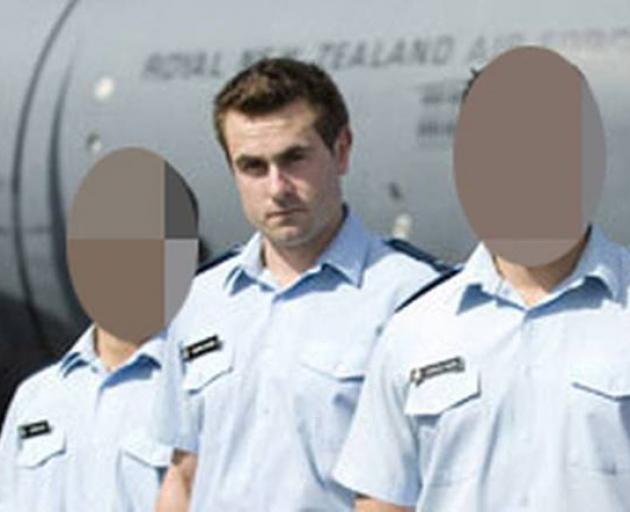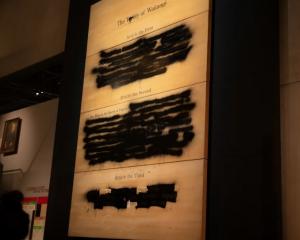
The New Zealand Police appealed Judge Belinda Pidwell's District Court decision to discharge Corporal Richard Graham without conviction on charges of burglary, offering to supply drugs, possession of a psychoactive product and possession of a controlled drug.
In September 2016, Graham was living and worked at the Whenuapai Air Force base, but until February 2015 he had spent three years as an active Defence Force (NZDF) operative in a sensitive specialist intelligence role overseas, court documents read.
Graham's unit and the nature and location of his deployment remains suppressed, but the Herald can reveal it has been described as a hostile operation involving at least 13 people.
At the appeal hearing last October, the High Court at Auckland heard that Graham was a "secret agent" in the NZDF who had a "highly stressful posting overseas".
During his deployment Graham began using drugs because "they were highly effective in his role", the non-commissioned man's lawyer Karl Trotter said.
Trotter said his client was "trained in ways to be deceptive" and when he returned home his local command structure knew nothing of his overseas operations.
Questions the New Zealand Herald has asked the NZDF about Graham's deployment are being considered under the Official Information Act.
Graham's offending came after he returned to New Zealand, where he used his security clearance to access two buildings at the military base near Auckland three times.
He stole several items, including electronics containing operationally sensitive equipment. The material was valued at more than $200,000, according to court documents.
Police searched Graham's home and a storage unit and found Benzylpiperazine (BZP) pills in a house safe and the psychoactive drug NBOMe in two containers at the storage unit.
Police also seized and examined two cellphones showing "a large number of communications relating to the supply or trading of methamphetamine".
There were about 700 calls to and from the phones over three to four months, court documents show.
Graham pleaded guilty to all the charges and appeared in the Waitakere District Court for sentencing.
Judge Pidwell said the offending was a significant breach of trust against the Air Force, particularly because he had used his security clearance at a significant level to commit the crimes.
"There was a significant amount of planning by Graham, he used his inside knowledge of the air base, targeted items to steal, and then placed them in a secure unit," she said.

Judge Pidwell also said the gravity of the offending was significantly reduced because of the high stress of Graham's deployment, a character reference from a senior military officer, and Graham's rehab efforts.
The judge said Graham would likely be dishonourably discharged from the NZDF if he was convicted but the court could not interfere with military decisions.
However, in the police's appeal, counsel Scott McColgan argued that Judge Pidwell erred in law when assessing the gravity of Graham's offending.
McColgan said the ruling meant Graham walked away "without even convictions to mark the offending".
He said the judge failed to consider the importance of security in Graham's field of work.
When making her ruling on the appeal, Justice Anne Hinton said in the December 22 judgment that the "very negative effect" on Graham from his hostile deployment overseas did mitigate the offending, as did his cooperation with police.
She also referred to an affidavit from one of Graham's commanding officers, whose identity is suppressed, which said of the 13 troops deployed with Graham, three had difficulties assimilating back into normal Kiwi life, and significant behavioural changes had been noted in five others.
She said Graham had struggled with his mental health, "which no doubt flow[s] in part from his earlier war-based deployment".
However, Justice Hinton said Judge Pidwell had erred when considering the seriousness and consequences of Graham's crimes.
"It is almost inevitable that Mr Graham will be dishonourably discharged from the New Zealand Defence Force if he receives convictions for his offending. There is a strong stigma that attaches to such a discharge," Justice Hinton said.
She convicted Graham on all the charges and sent his case back to the District Court for sentencing, which the Herald understands will take place in April.
Justice Hinton added: "I acknowledge that this is a highly unusual case. I am sympathetic to Mr Graham's situation. I accept Judge's Pidwell's comments about the difficulties of being sent by the [NZDF] to a hostile environment and receiving no proper treatment on return."
She continued: "I am impressed by the way Mr Graham has responded to the charges, and I hope that he will be an example to others who get into similar difficulties."
Graham, who is now drug-free, has since done a building apprenticeship after his arrest as he attempts to return to civilian life.
In an affidavit, Graham said he hoped to start a new career path as a project manager, but added that he wanted to remain with the NZDF.












